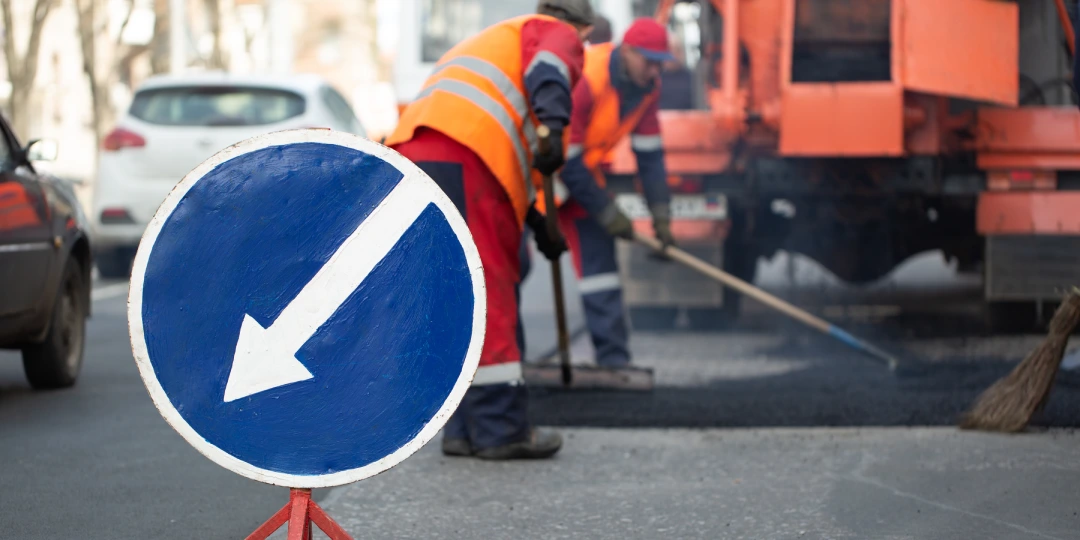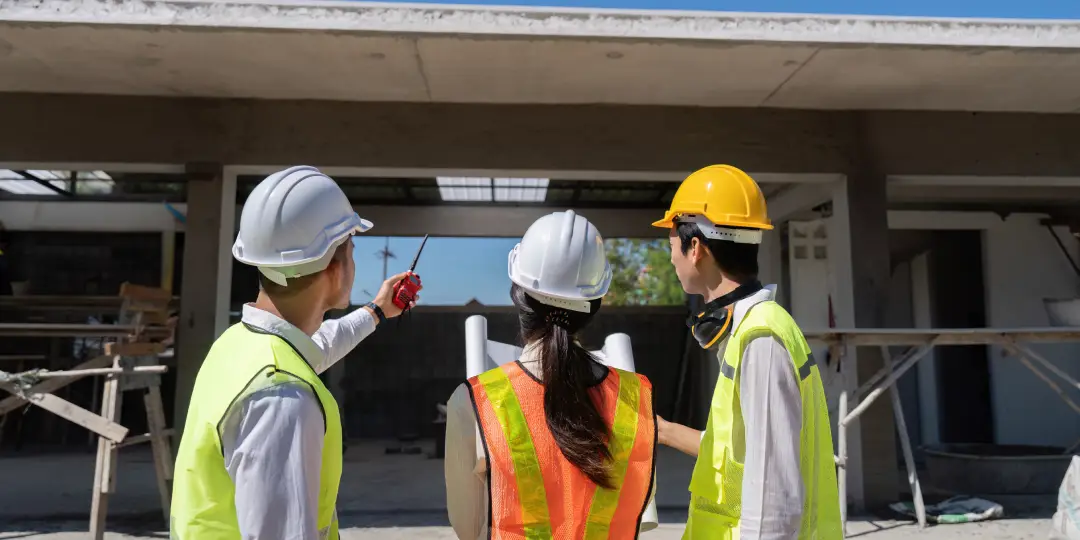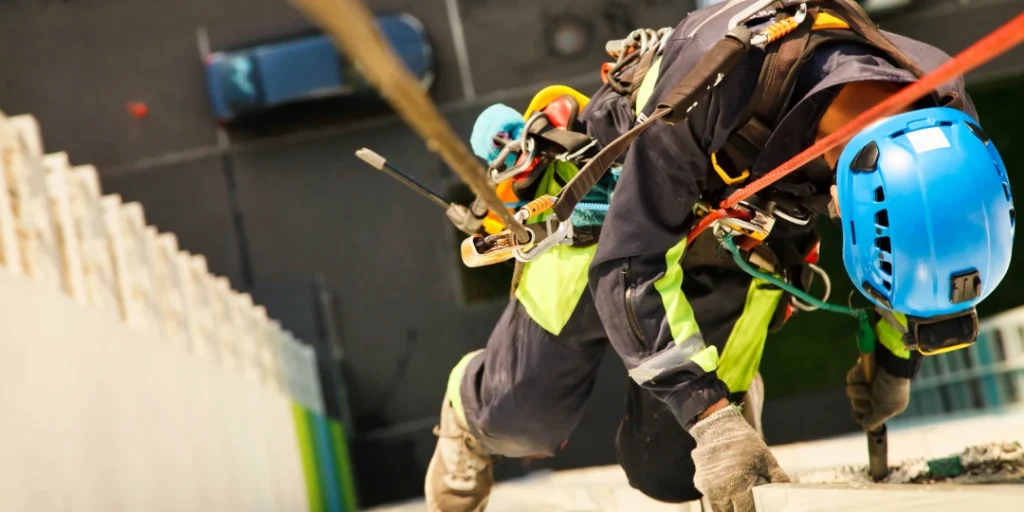Introduction: The Critical Role of Flagging in Urban Safety
In the fast-evolving landscape of modern cities, flagging has emerged as a cornerstone of urban safety and operational continuity. Nowhere is this more evident than in Nashville, a city experiencing a confluence of growth and mobility. As cranes dot the skyline and construction zones appear block by block, flaggers are called upon not only to guide traffic but to anchor a deeper sense of security in ever-shifting environments.
At Fortier Loss Control, flagging is elevated beyond a transactional service. It is treated as a critical public safety operation—delivered with discipline, foresight, and an unwavering commitment to minimizing risk. Flaggers must remain vigilant amid distractions, communicate swiftly with both coworkers and the public, and make judgment calls in split seconds. Their role is not passive; it is kinetic, often performed under intense environmental conditions and surrounded by moving hazards.
These professionals are the first line of defense against potential incidents. Whether it’s protecting construction crews installing underground utilities or safeguarding pedestrians near an arterial road closure, flaggers bring order to unpredictability. Without their active management, intersections could devolve into gridlock, and work zones would become vulnerable to erratic driver behavior. Their presence brings structure to chaos—and ultimately, saves lives.
Nashville’s Expanding Infrastructure and the Growing Demand for Traffic Control
Nashville’s evolution from a cultural capital into an economic powerhouse has set in motion an unprecedented wave of infrastructure investment. New housing developments push city limits outward. Roadway improvement projects snake through both suburban enclaves and dense urban corridors. Public transportation upgrades and private developments break ground almost weekly. With this aggressive momentum comes an unavoidable byproduct: congestion, detours, and increased risk of traffic-related incidents.
In response, the demand for traffic control services—especially professional flagging—has reached critical mass. Contractors and municipalities alike recognize that unmanaged work zones are no longer tolerable in a city as busy and interconnected as Nashville. The margin for error has narrowed. Fortier Loss Control steps into this high-stakes environment with refined processes, trained personnel, and a strong operational presence across Middle Tennessee.
Each new infrastructure project introduces unique logistical challenges. Some unfold near schools or hospitals, requiring heightened sensitivity. Others occur on high-speed roadways, where milliseconds determine safety outcomes. Fortier’s flagging teams are trained to anticipate these variables and respond accordingly, ensuring that progress doesn’t come at the expense of protection.
As Nashville continues to grow skyward and outward, the role of competent, well-deployed flaggers will only become more vital. Fortier’s consistent presence across these evolving corridors is not just a service—it’s a strategic asset in keeping the city moving and safe.
What Sets Fortier Loss Control Apart in the Flagging Industry
In a marketplace saturated with vendors, Fortier Loss Control has cultivated a distinct identity grounded in quality, adaptability, and integrity. Their reputation across Nashville is not the product of marketing—it’s the outcome of consistent, results-driven performance in the field. Where others may approach flagging as a logistical obligation, Fortier treats it as a specialized discipline requiring nuance, technical understanding, and an unshakable sense of accountability.
One of Fortier’s most distinguishing attributes is the composition of their workforce. The flaggers and supervisors deployed to Nashville’s work zones are not seasonal hires or temporary staffers—they’re career-minded professionals with a deep respect for their craft. Whether managing multilane closures during peak traffic or navigating tight, high-risk zones in densely populated districts, Fortier’s crews maintain a calm, authoritative presence.
Furthermore, responsiveness is embedded into their operational DNA. When urgent projects arise or conditions change with little notice, Fortier mobilizes quickly and decisively. This agility has earned them long-standing trust from general contractors, civil engineers, and municipal leaders alike. Clients don’t just hire Fortier for compliance—they rely on them to protect timelines, reputations, and lives.

The Importance of Trained and Certified Flaggers
Certification alone does not make a flagger competent. At Fortier Loss Control, training is only the beginning. Their flaggers are steeped in practical experience and subjected to ongoing education that extends beyond the baseline requirements of the Manual on Uniform Traffic Control Devices (MUTCD). It is a process that forges individuals capable of handling real-time adversity—not just following checklists.
Training modules include situational drills that simulate high-pressure environments, mock incident scenarios, and real-world evaluations. Emphasis is placed on visual communication, spatial awareness, and the psychology of driver behavior. Flaggers must understand not just what to signal, but why a particular action maintains the safest flow in a specific context.
This foundation produces field teams who think critically and react instinctively—skills crucial when a distracted driver barrels toward a barricade or when emergency vehicles require sudden re-routing. Fortier’s flaggers are empowered decision-makers on the ground. They are not passive signposts; they are vigilant stewards of safety.
Ensuring Work Zone Compliance with Local and Federal Regulations
Compliance in traffic control is a multidimensional obligation—part legal, part operational, and wholly indispensable. Regulatory missteps can result in penalties, shutdowns, or worse: compromised safety. Fortier Loss Control brings deep regulatory fluency to every project, ensuring that both local statutes and federal mandates are meticulously adhered to from inception to completion.
Before a flagger even sets foot on-site, Fortier’s team has likely performed a compliance audit, reviewed municipal guidelines, and submitted a fully engineered traffic control plan for approval. These plans account for signage placement, lane configurations, pedestrian flow, and emergency access—all tailored to the specific nature and location of the work zone.
Field supervisors conduct site checks to verify setup integrity, and compliance officers remain on-call to resolve potential infractions or inspection queries swiftly. This culture of proactive governance positions Fortier not just as a flagging provider, but as a regulatory partner to its clients. When you work with Fortier, you inherit a system built to navigate bureaucracy with precision—so your project can proceed without disruption or liability exposure.
The Strategic Planning Behind Every Fortier Flagging Operation
Flagging, when executed professionally, is never improvised. It is the result of deliberate, data-informed strategy. At Fortier Loss Control, each operation begins long before a flagger dons a vest or positions a cone. It starts at the strategic level, where planning meets precision and every variable is accounted for with foresight.
The process begins with thorough site reconnaissance. Field managers and planners examine the geography, traffic patterns, peak travel times, and adjacent risks—such as nearby schools, emergency access routes, or pedestrian crossings. This assessment informs the development of a tailored traffic control plan that does not merely react to conditions but anticipates them.
These plans are not off-the-shelf templates. Each is customized to the project’s unique constraints and objectives. Detour configurations, staging areas, vehicle queue projections, and emergency rerouting options are all mapped out in detail. Fortier’s planners work hand-in-hand with project stakeholders to ensure alignment across operations, public access, and safety enforcement.
Once operations are underway, flexibility becomes paramount. Weather changes, utility surprises, or unplanned traffic surges can disrupt even the most robust plans. Fortier’s teams are trained to adapt tactically in real-time—reassigning resources, recalibrating routes, and updating control protocols without sacrificing safety or efficiency. This ability to blend structure with adaptability is one of Fortier’s most potent differentiators.

Technology and Tools that Power Safe Traffic Management
The modern work zone demands more than cones and signs—it demands connectivity, real-time oversight, and intelligent responsiveness. Fortier Loss Control embraces this reality by equipping its field teams with a suite of advanced tools designed to elevate operational safety and coordination.
Central to this arsenal are digital two-way radios with noise-canceling and GPS capabilities, allowing clear communication across dispersed teams—even in high-decibel environments. These radios minimize delays in relaying critical instructions and ensure rapid coordination when seconds matter most.
GPS-enabled vehicle tracking plays a pivotal role in managing moving work zones, pilot car operations, and active lane shifts. Supervisors receive real-time positional data, allowing them to optimize equipment flow and prevent bottlenecks before they form. This tracking system also supports post-operation analysis for performance improvement.
Fortier also deploys incident monitoring platforms that provide immediate alerts when anomalies occur—be it a vehicle breaching the perimeter or an unauthorized pedestrian entering a controlled area. These systems empower supervisors to intervene decisively and prevent minor disruptions from escalating into dangerous events.
By fusing traditional craftsmanship with cutting-edge technology, Fortier delivers flagging services that are not only compliant but also intelligent. Their approach demonstrates that safety and innovation are not at odds—they are inextricably linked.
Collaboration with Municipalities, Contractors, and Utility Providers
Seamless traffic control doesn’t occur in isolation. It is the result of cross-functional collaboration, especially in environments as multifaceted as Nashville’s infrastructure ecosystem. Fortier Loss Control has built its reputation not only on operational excellence but on its ability to work fluidly alongside a broad array of stakeholders—from municipal agencies and public utilities to private developers and general contractors.
This collaborative framework begins with proactive communication. Fortier’s leadership engages early with city traffic engineers, permitting departments, and utility coordinators to ensure that traffic control plans align with civic expectations and timelines. By embedding themselves into the early stages of project planning, they minimize the risk of misalignment or regulatory delays down the line.
Contractors, too, benefit from Fortier’s integrative approach. Their project managers and field supervisors maintain constant dialogue with site superintendents, adjusting flagging operations in lockstep with construction milestones and equipment movement. Whether it’s a sewer rehabilitation project or a multi-phase roadway resurfacing, Fortier adapts its presence to amplify—not hinder—the work underway.
Utility providers often face last-minute service calls or emergency repairs, and Fortier has become a trusted on-call partner for many of them. Their ability to mobilize quickly and deploy trained teams in short order ensures that outages and urgent fixes do not become public safety risks. In short, Fortier is more than a vendor; it is a strategic collaborator, helping ensure the city’s infrastructure continues to function without undue hazard or delay.
Why Fortier’s Flagging Services are an Investment in Public Safety
Flagging services are often viewed through the lens of compliance or operational necessity. But Fortier Loss Control reframes them as a foundational element of public safety—one that holds tangible value for communities, workers, and project owners alike. Their role in the field is not merely to direct vehicles; it is to safeguard human life amidst inherently hazardous conditions.
A well-orchestrated flagging operation reduces exposure to vehicle-related injuries for both workers and pedestrians. It mitigates confusion and aggression among drivers by providing clear, authoritative guidance through complex or congested zones. It also acts as a deterrent against risky behavior, reinforcing the visibility and seriousness of the work taking place.
From a liability perspective, Fortier’s services serve as a shield. Clients who engage their teams gain assurance that every aspect of traffic control is being handled to the highest legal and professional standards. This minimizes the likelihood of lawsuits, insurance claims, and reputational harm that can arise from work zone incidents.
Equally important is the public perception that comes with visible, competent flagging. Communities notice when safety is prioritized. Residents and commuters develop confidence in infrastructure projects when they witness orderly, respectful, and professional traffic management. Fortier’s presence helps cultivate that trust, transforming what could be a source of frustration into a model of civic responsibility.
Ultimately, choosing Fortier is not just about ticking boxes on a permit—it is a deliberate decision to elevate safety, minimize risk, and uphold the integrity of public space. Their teams are guardians of the work zone, defenders of community welfare, and indispensable partners in Nashville’s progress.

Frequently Asked Questions

Conclusion: Flagging the Future of Nashville’s Roads, One Work Zone at a Time
In a city undergoing rapid development, the necessity of professional flagging services has never been more urgent. As Nashville transforms with new infrastructure, bustling traffic corridors, and complex construction projects, flagging becomes not just a regulatory requirement—but a civic imperative. Fortier Loss Control has positioned itself at the forefront of this essential work, setting a new standard in how flagging is planned, executed, and valued.
Fortier’s approach to flagging transcends the basics. Every project is treated as a critical safety operation—designed with intention, supported by cutting-edge tools, and delivered by highly trained professionals. Whether it’s a temporary lane closure or a long-term urban development, Fortier’s presence signals control, protection, and public care.
Each flagging operation is a commitment to safeguarding lives—those of workers, drivers, and pedestrians alike. Fortier’s teams are not just directing traffic; they are actively preventing harm, reducing confusion, and enabling progress to continue without compromising community welfare.
In every Nashville neighborhood—from the urban core to the suburban outskirts—Fortier’s flagging services deliver more than flow management. They deliver peace of mind. Clients, municipalities, and residents know that when Fortier is on-site, safety is in expert hands.
As Nashville paves the road to the future, Fortier Loss Control continues to lead the way—flagging each step with professionalism, reliability, and unwavering dedication to public safety.



